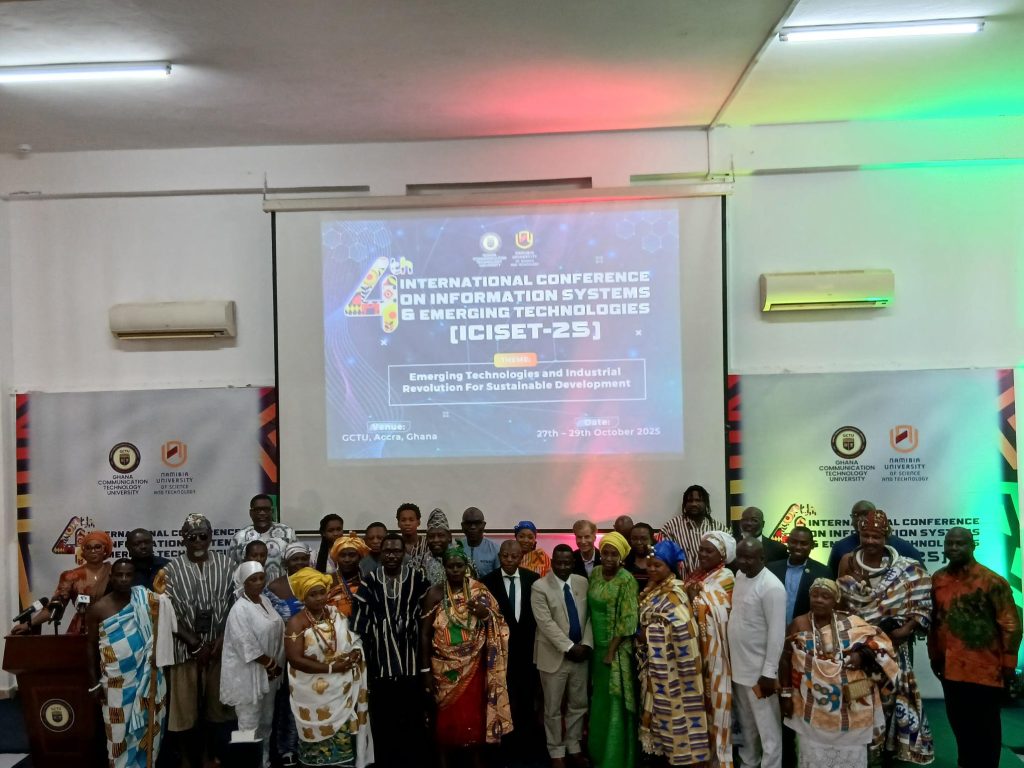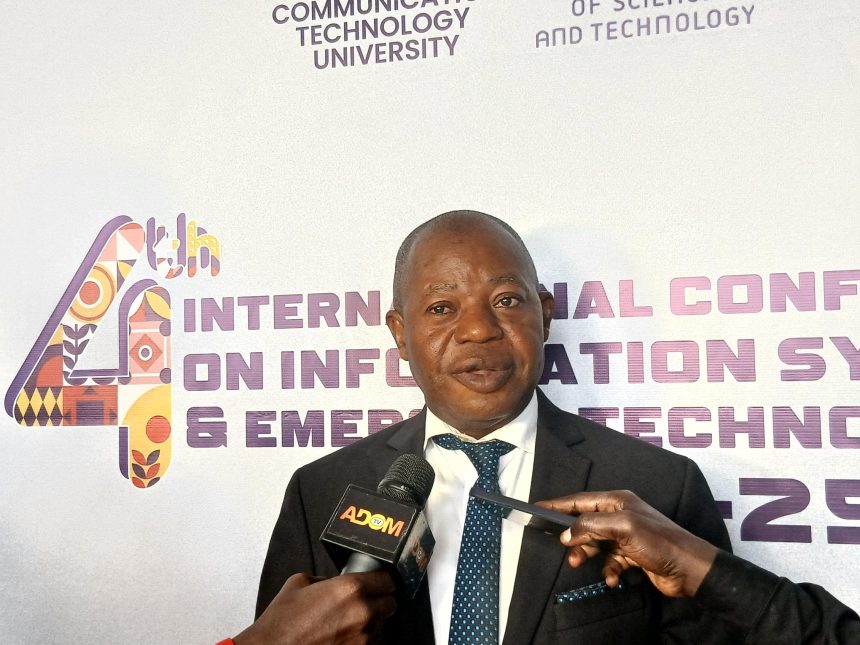Mr. Divine Selassie Agbeti, the Director-General of the Cyber Security Authority (CSA), has urged African countries to adopt and use emerging technologies responsibly to ensure sustainable digital transformation across the continent.
He said emerging technologies offered both opportunities and vulnerabilities, and that ethical use of these tools was the only way to derive their maximise benefits for national development.
Mr. Agbeti gave the advice in a speech read on his behalf by Mr. Jake France, Head, Cybersecurity Technology Standards, CSA, at the opening of a three-day international conference on information systems and emerging technologies, in Accra, on Monday.
The event, hosted by the Ghana Communication Technology University (GCTU) in collaboration with the Namibia University of Science and Technology, is aimed at providing a platform to discuss how emerging technologies such as artificial intelligence (AI), quantum computing, robotics, blockchain, and the Internet of Things (IoT) could be harnessed for sustainable development.
The conference is expected to bring together about 150 participants who will present academic papers on emerging technologies.
It is on the theme: “Emerging Technologies and Industrial Revolution for Sustainable Development.”
Mr. Agbeti warned that emerging technologies and innovations expanded exposure to cyber threats, misinformation, and digital inequality.
“The very technologies driving innovation are also expanding our exposure to cyber threats, misinformation, data breaches, and digital inequality. The challenge, therefore, is not simply to adopt new technologies, but to adopt them responsibly guided by principles of security, accountability, ethics, and inclusivity,” Mr. Agbeti said.
Between January and March 2025, CSA recorded 305 cases of online fraud, up from 194 in the same period last year, with financial losses in that span growing to GHC4.4 million from about GHC2.4 million.
Losses from online blackmail and sextortion also surged, with 155 incidents in the first four months of 2025, while financial damage approached GHC500,000, nearly five times the amount recorded during the same period in 2024.
Additionally, from January to September 2025, the CSA recorded a total cybercrime-related financial losses of 19,313,000.
Mr. Agbeti stressed that cyber security must not be seen as a cost but as a critical enabler of innovation and socio-economic growth.
“Sustainability in the digital era goes beyond environmental considerations and includes data trust. Without trust, the promise of emerging technologies will falter,” he said.
“Cyber security must therefore be viewed not as a cost, but as an enabler of innovation and socio-economic development.”
The Director-General said the CSA was actively working to integrate cyber security education into Ghana’s national curriculum to tackle the challenges, explaining that the initiative would span all educational levels, from basic schools emphasizing online safety to tertiary institutions focusing on advanced topics such as data forensics and AI-driven security systems.
He said this approach would cultivate a generation of security-conscious citizens equipped to safeguard the nation’s digital future.
The Director-General reaffirmed the CSA’s commitment to collaborating with academic institutions, government agencies, civil society, and international partners to promote cyber security awareness, standards, and capacity building.
“Innovation without security is vulnerability,” Mr. Agbeti said.
Mr. Haruna Iddrisu, the Minister of Education, also urged African countries to embrace the opportunities presented by the fourth industrial revolution, emphasising the need to transition from consumers of global technologies to architects of innovation-driven economies.

The Minister reaffirmed the Ministry’s commitment to realigning Ghana’s educational ecosystem to meet industry demands, highlighting investments in STEM education, TVET modernisation, smart classrooms, and digital literacy frameworks as key initiatives to nurture critical thinking and global competitiveness among Ghanaian students.
To prepare for the demands of the digital era, he also announced plans to integrate AI, data analytics, green technology, and digital ethics into tertiary curricula, stressing the need for universities to evolve into innovation ecosystems that bridge academia and industry while fostering interdisciplinary collaboration.
Mr. Iddrisu also called for strong collaboration between government, academia, and industry, while urging students and young innovators to leverage the tools of the Fourth Industrial Revolution to design solutions for Ghana’s challenges.
Professor Ebenezer Malcalm, Acting Pro-Vost Chancellor, GCTU, said as a research and technology-based University, it was commitment to empowering its students to enable them to excel in the fourth and fifth industrial revolution.
Professor Jude Odiakaosa Osakwe, Faculty of Computing and Informatics at Namibia University of Science and Technology, and Co-Chair of the Conference, said the University hoped to expand the conference to other universities across the continent.
GNA






